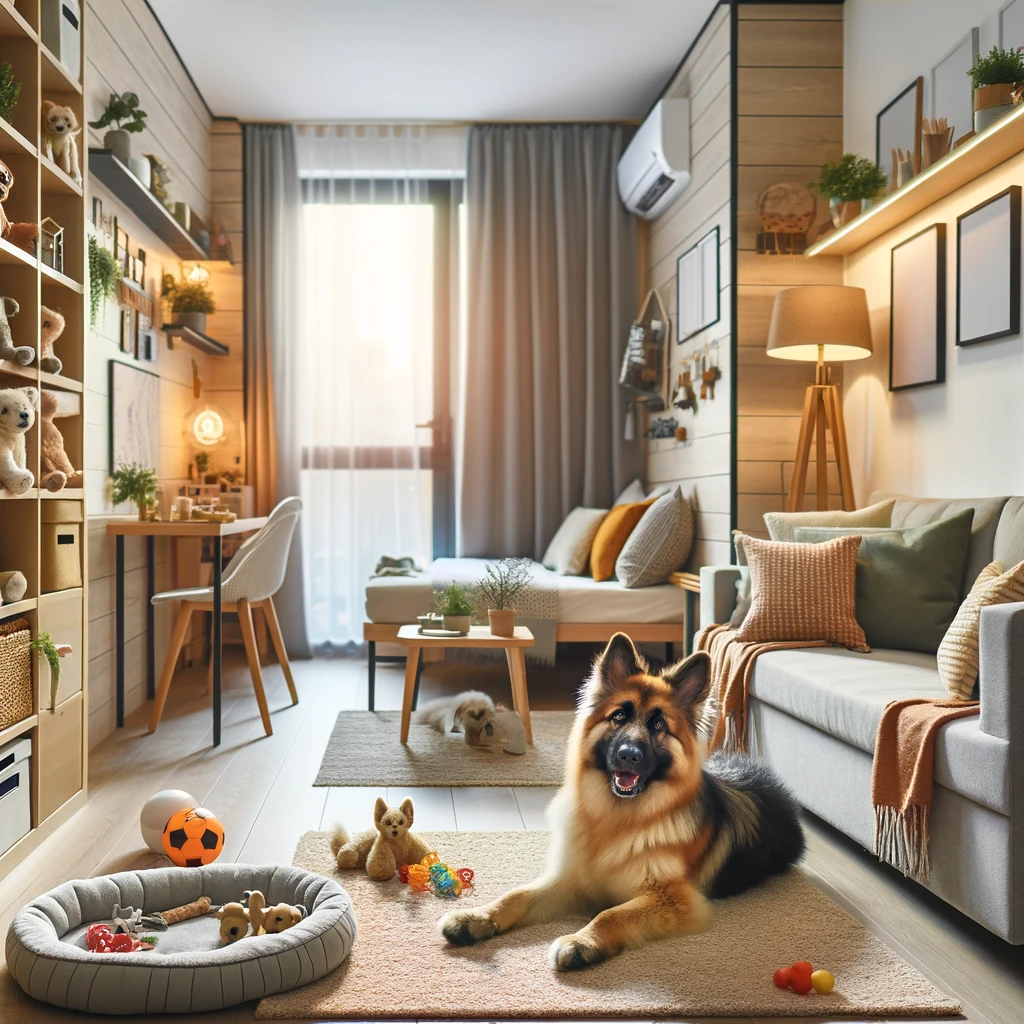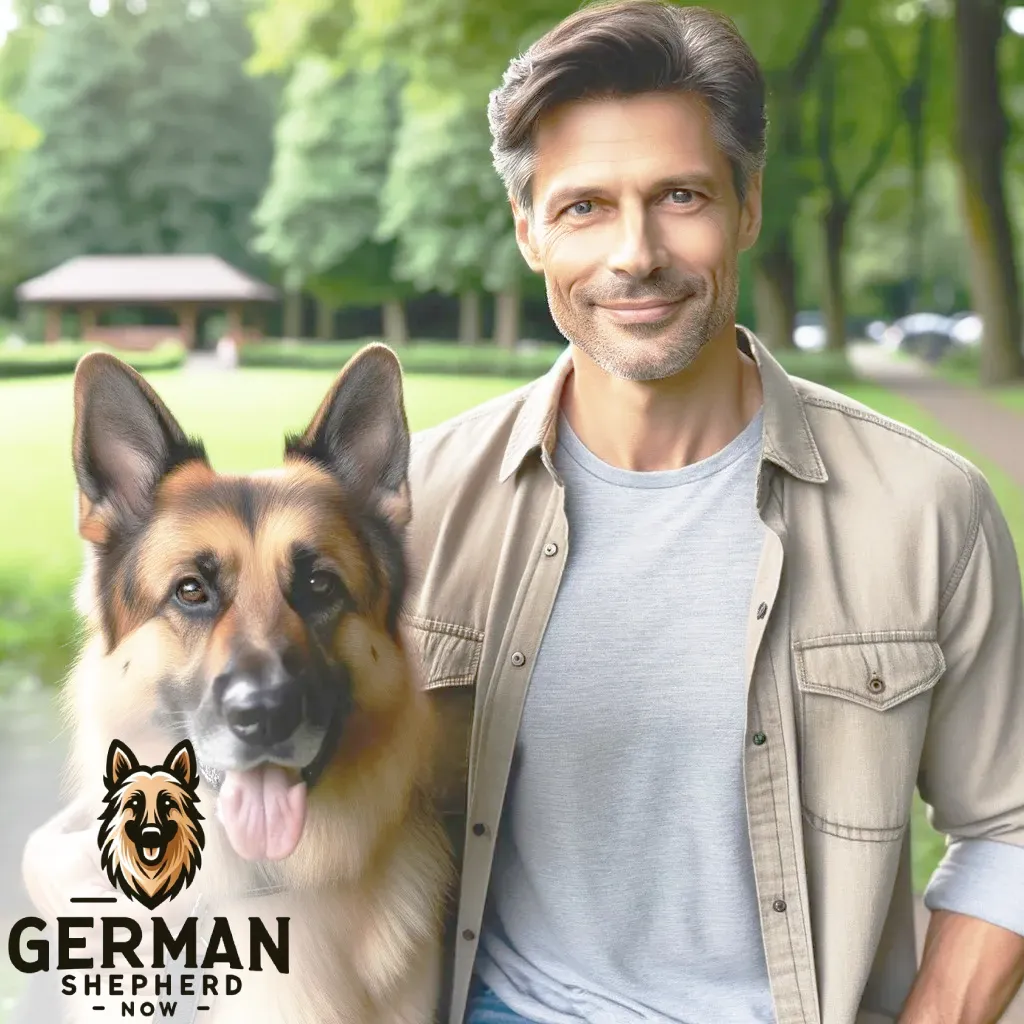Can German Shepherds Live Comfortably in Small Spaces?

Yes, German Shepherds can live in small spaces if their physical and mental exercise needs are met daily. They require ample exercise, including walks, playtime, and mental stimulation, to stay healthy and happy.
A well-trained German Shepherd can adapt to living in a small space if they receive enough attention and activity. Without adequate exercise and engagement, they may develop behavioral issues.
German Shepherds, known for their intelligence, loyalty, and versatility, are a breed that can adapt to various living conditions, including small spaces. Understanding and meeting their needs is the key to keeping a German Shepherd happy in a smaller living environment.
Will German Shepherds Stay Happy in Small Spaces?
German Shepherds can be happy in small spaces with enough physical activity, mental challenges, and chances to socialize. Keeping them active and engaged is important to ensure they stay happy and healthy in a smaller home.
Exercise is paramount. German Shepherds are energetic and require regular, vigorous exercise to maintain their physical health and mental well-being. Owners living in small spaces must commit to daily walks, runs, and play sessions, ideally in a nearby park or open space. This not only helps in expending their energy but also provides essential mental stimulation.
Mental stimulation is equally important. These intelligent dogs thrive on challenges and learning. Interactive toys, training sessions, and games like hide-and-seek with treats can keep their minds active and prevent boredom. Training sessions, in particular, can strengthen the bond between the dog and the owner while ensuring the dog is well-behaved and responsive.
Socialization is another aspect. German Shepherds must interact with people and other dogs to develop a balanced temperament. Regular visits to dog parks or arranging playdates with other dogs can provide valuable social experiences.
Creating a comfortable indoor environment is essential. Even in a small space, a dedicated area with their bed, toys, and water bowl can give them a sense of security and belonging.
Ideal Room Size for a German Shepherd
When thinking about a good indoor space for a German Shepherd, how big the room is matters; these dogs are big, full of energy, and very smart. They need lots of exercise and things to keep their minds busy. So, having a room big enough for them to move around freely and stay active is important, which keeps them healthy and happy.
What Size Room Do They Need?
German Shepherds need a good amount of space. A room at least 10×10 feet (or 3×3 meters) is a good starting point. This size should give them enough room to walk around, play, and do basic training exercises without feeling cramped. But remember, every dog is different.
Younger dogs or those with lots of energy might need more space, while older dogs might be okay with less. Ensure there’s space for their bed, food and water bowls, toys, and even some equipment for extra mental challenges.
More Than Size
The room’s size is important, but so is making sure it’s a safe and happy place for your dog. The area should be free from anything that could hurt them, and have plenty of toys and puzzles to keep their brains working. Good airflow, comfortable temperatures, and natural light are also key to making the space nice.
Keeping Your German Shepherd Happy in a Small Space
Living in a small space with a German Shepherd might seem challenging at first glance, given their size and energy levels. However, with the right strategies, you can ensure your furry friends are as happy and healthy as they would be in a sprawling backyard. Here are some essential tips to keep your German Shepherd thriving in a more compact living environment.
Regular Exercise
Make exercise a priority. German Shepherds need plenty of physical activity to burn off energy and stay healthy. Plan for at least two long walks a day, and consider adding runs, hikes, or trips to a dog park if possible. This not only keeps them fit but also helps prevent boredom and anxiety.
Mental Stimulation
Keep their minds active. Puzzle toys, training sessions, and games can significantly improve their mental well-being. German Shepherds are intelligent dogs that love to learn, so teaching them new tricks or commands can be a great way to keep their minds sharp.
Socialization
Ensure they have social interactions. Regularly meeting other dogs and people helps maintain their social skills and prevents behavioral issues. If you have friends with dogs, arranging playdates can be a fantastic way for them to interact and play.
Create a Comfortable Space
Designate a cozy area just for them. Even in a small apartment, having a dedicated spot with their bed, toys, and water bowl can give them a sense of security and belonging. This space should be a haven where they can relax and feel comfortable.
Routine and Structure
Maintain a consistent routine. German Shepherds thrive on structure. A predictable schedule for walks, meals, and playtime can help them feel more secure and reduce anxiety.
Indoor Activities
Incorporate indoor play. On days when long outdoor activities aren’t possible, ensure you have various indoor games to keep them engaged. Tug-of-war, hide-and-seek, and interactive toys can be excellent for indoor fun.
Training and Obedience
Continue with ongoing training. Working on obedience and other training exercises reinforces good behavior and strengthens your bond with your dog. It’s also another form of mental exercise for them.
Regular Vet Checkups
Keep up with health care. Regular visits to the vet ensure your German Shepherd stays in top health. This is crucial to catch any potential issues early, especially in smaller living spaces.
Fun Games to Play with Your GSD in a Small Space
Living in a small space doesn’t mean you can’t have a great time with your German Shepherd. These intelligent and energetic dogs love to play, and plenty of games are designed to stimulate their minds, use their energy, and strengthen the bond between you and your furry friend. Here’s a list of games that are perfect for playing in limited spaces:
1. Hide and Seek
This classic game is not just for kids; dogs love it too! Hide somewhere in your home and call your dog. It’s a great way to work on their recall command and keep them mentally sharp.
2. Tug of War
Using a sturdy rope or a tug toy, engage in a game of tug of war. It’s a fantastic way to exercise their muscles and satisfy their instincts. Just teach them a “release” command to keep playtime under control.
3. Find the Treats
Hide treats around the room and let your German Shepherd find them. This game enhances their sense of smell and keeps them mentally stimulated. Start easy and make it more challenging as they get better at the game.
4. Puzzle Toys
Invest in good-quality puzzle toys that require your dog to solve a puzzle to get a treat. These toys are excellent for mental stimulation and can keep them busy for a while.
5. The Cup Game
Place a treat under one of three cups, shuffle them around, and let your dog pick the right cup. This game is not only fun but also improves their problem-solving skills.
6. Obedience Training
Turn training into a game by practicing commands like sit, stay, come, and down. Reward them with treats and praise to keep the session enjoyable and engaging.
7. Bubble Chasing
If you have some open space, blowing bubbles for your German Shepherd to chase can be a delightful game. Most dogs love jumping and popping the bubbles, and it’s a joy to watch.
8. Interactive Feeding Games
Use feeding time as an opportunity for play by using a food-dispensing toy. It makes them work for their food, slowing down fast eaters and providing entertainment.
Thriving Together: German Shepherds in Small Spaces
With enough exercise and brain games, German Shepherds can be happy in small spaces. These smart and lively dogs need daily walks, playtime, puzzles, and training to keep them fit and cheerful.
Meeting new people and dogs often is also key to their happiness. Plus, having their cozy spot at home helps them feel safe. With the right mix of activity, fun, and a snug living area, German Shepherds can do well in smaller homes, showing that the quality of their home matters more than its size.

I’m Martin, and I grew up in the super cool city of Seattle. You know, the place with all the incredible mountains and forests? Yeah, that’s my playground!
Ever since I was little, I’ve been all about nature. I used to wander around the woods with a notebook, doodling all the cool plants and animals I’d find.
